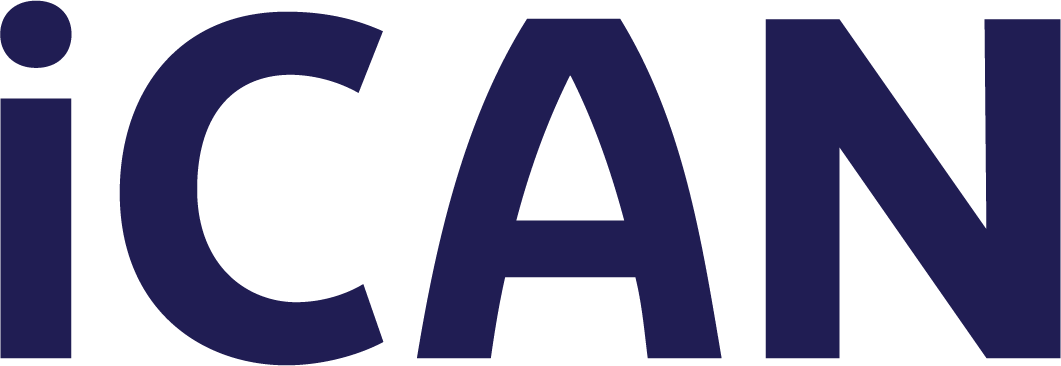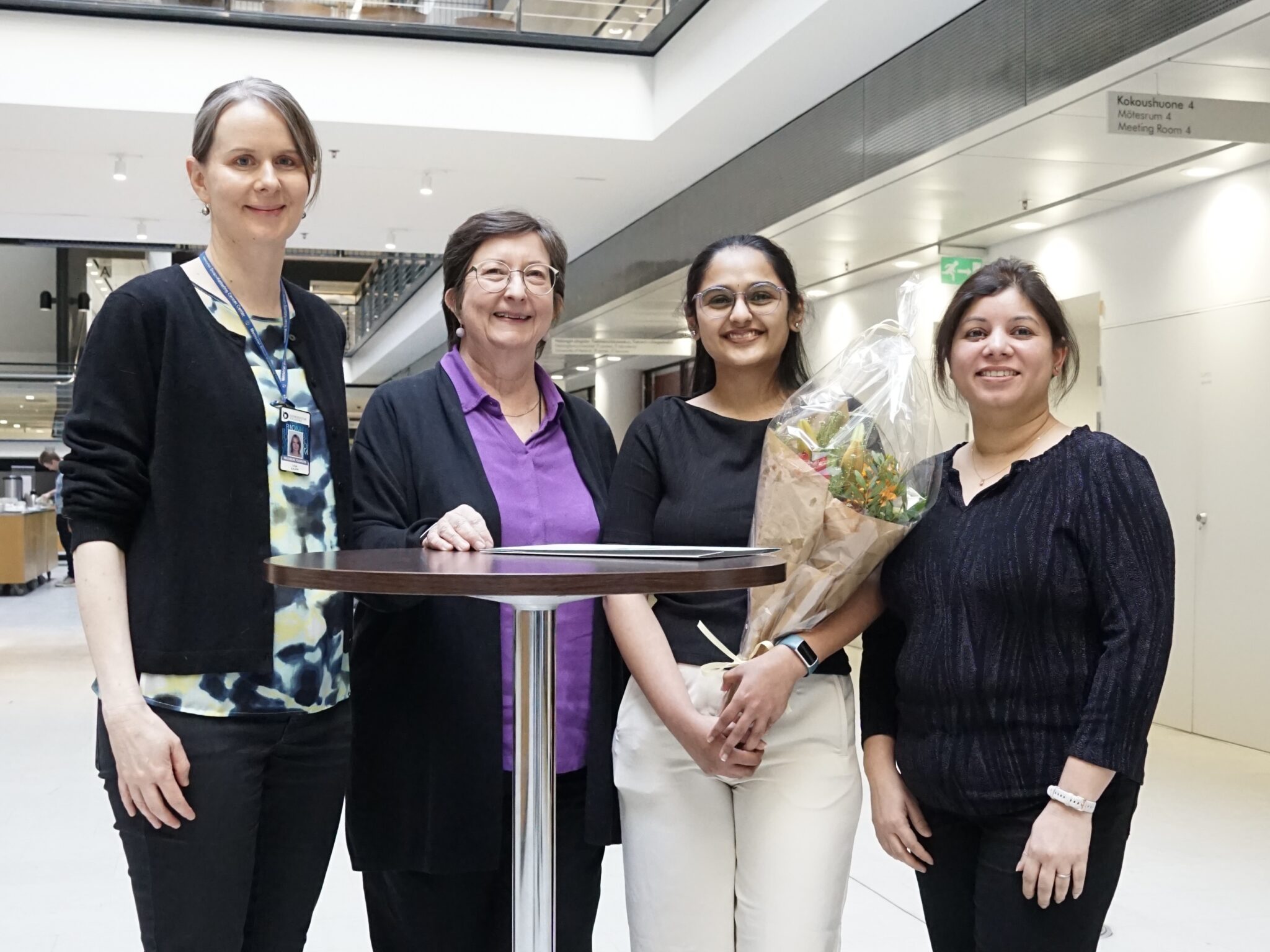iCANDOC Motivated to complete Master’s on Time – with Award-Winning Results
The Faculty of Medicine, University of Helsinki awarded the best Master’s theses of 2024 at a ceremony on Friday, March 21, 2025, at Biomedicum. The award for the TRANSMED – Master’s Programme in Translational Medicine was presented to Srividhya Sundaresan for her thesis Co-expressed markers in high grade serous carcinoma harboring endogenous DNA damage. The thesis was supervised by Prof. Liisa Kauppi. In August 2024, Sundaresan started as a doctoral researcher in the iCANDOC doctoral pilot. Her iCANDOC PhD project builds on the studies she initiated in her Master’s thesis work.
In her Master’s thesis, Sundaresan studied high-grade serous ovarian cancer, the most lethal of gynecological cancers. “The goal of chemotherapy and PARP inhibitors is to cause lethal DNA damage, which cancer cells deficient in DNA repair struggle to overcome, leading to better treatment outcomes. In contrast, cancer cells with efficient DNA repair survive these treatments, resulting in poorer prognoses,” she explains. Notably, prior research in the Kauppi lab on clinical ovarian samples found that tumors with high DNA repair capacity had higher levels of endogenous DNA damage, suggesting a potential vulnerability. “I analyzed multiplex protein datasets and found distinct proteins linked to different DNA repair capacities. We also identified pro-survival proteins in tumors proficient in DNA repair, pointing to new therapeutic targets to improve treatment outcomes.”
Kauppi says that Sundaresan posed an interesting and novel research question, which could be addressed thanks to existing datasets from her and collaborators’ labs. Like Kauppi, professor Risto Renkonen who selected the best TRANSMED thesis, also commended Sundaresan’s work in the award statement, particularly her independent use of Cytometry by Time of Flight (Sampsa Hautaniemi’s lab) and tissue-based cyclic immunofluorescence (Anniina Färkkilä’s lab). These techniques contributed to the mature thesis that successfully combined bioinformatics with wet-lab work.
Time is of the essence
One frequently discussed aspect of the Doctoral Education Pilot is the three- to four-year timeframe set for PhD projects. For some, the doctoral pilot’s call for applications meant accelerating their Master’s studies. Tiina Immonen, Director of the TRANSMED Master’s Programme, notes that compared to previous cohorts, the 2024 cohort showed a significant push to graduate within two years or even less so as to be eligible for iCANDOC positions. “The structured framework of the pilot was very appealing to students,” says Immonen.
Kauppi praises Sundaresan’s ability to stay on schedule with her Master’s thesis, emphasizing how crucial it is for meeting the pilot’s objectives. “The pilot also forces us to reconsider PhD requirements and their purpose in Finland. In my opinion, a PhD should not be the peak of one’s career but more like a researcher’s driver’s license,” says Kauppi, who is also the director of the Doctoral Program in Biomedicine (DPBM). “The pilot poses challenges for supervisors as well, but on the other hand, it provides an opportunity to establish clearer structures for doctoral studies—starting from regular thesis committee meetings early on to ensure doctoral students stay on the right track. Best practices will trickle down and benefit all PhD students.”
“Thinking about the PhD project timeline, not having to apply for funding saves a lot of time,” reminds Sweta Jha, PhD, postdoctoral researcher in the Kauppi lab and Sundaresan’s second iCANDOC supervisor. “The three-year contract removes a significant burden from international doctoral researchers, as it simplifies residence permit processes—another remarkable benefit of the program.”
A sense of community and continuity
When asked whether she and her iCANDOC colleagues feel pressure from being in the spotlight, Sundaresan shakes her head. “It’s the research that’s in focus, and the pilot hasn’t changed the way we work in the lab day to day,” she says, and expresses her gratitude to Liisa Kauppi and Tiina Immonen for guiding her transition from TRANSMED to iCANDOC.
“Having such a large cohort of Doctoral Researchers in our field is a unique situation. With secured funding and a strong sense of community, this setting supports doctoral researchers,” concludes Kauppi.
In the photo from left: Liisa Kauppi, Tiina Immonen, Srividhya Sundaresan, and Sweta Jha


